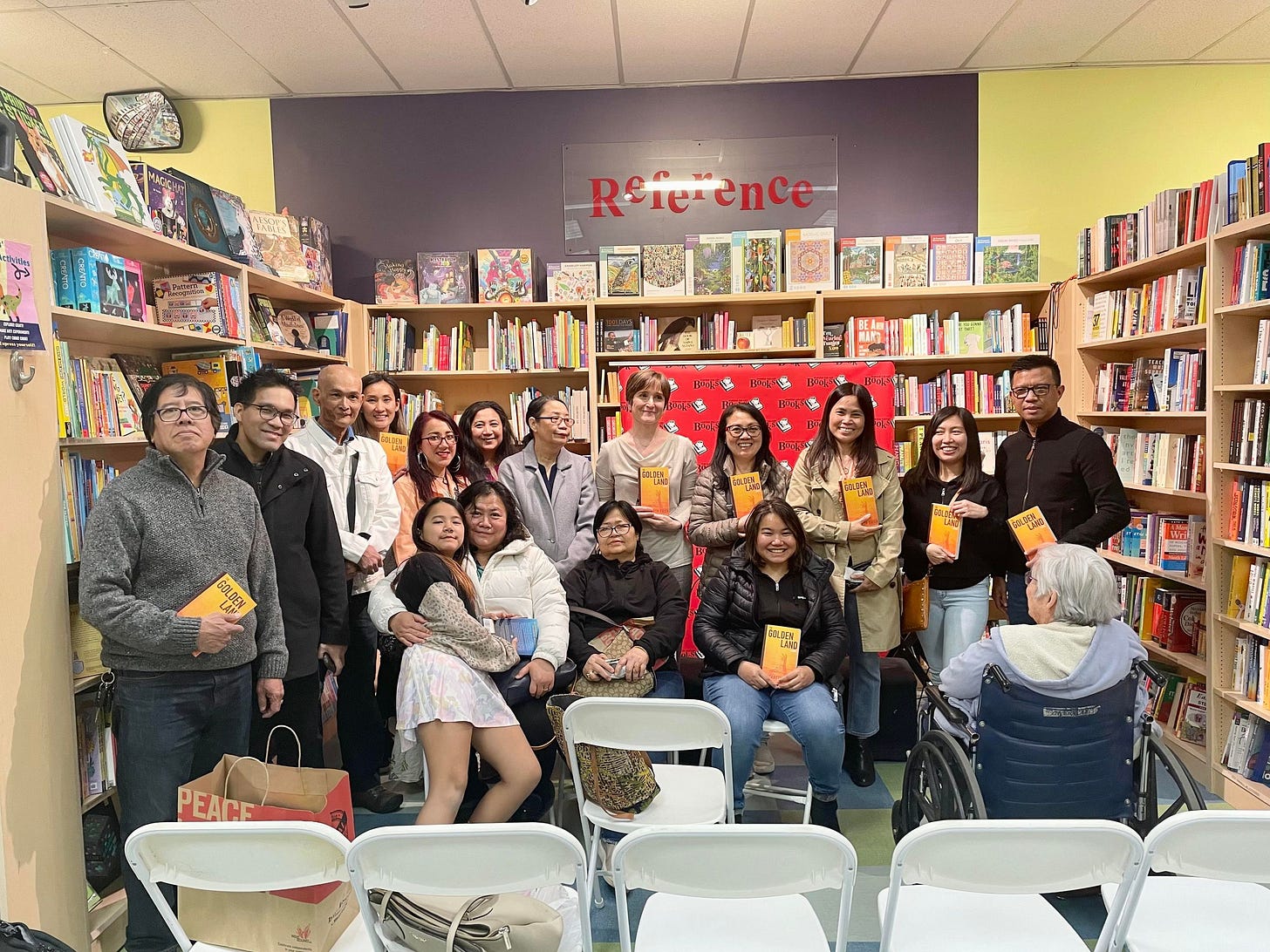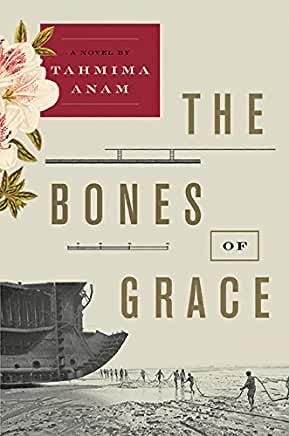Hi again! 🤗 Welcome to Author Abroad, a newsletter on reading, writing, and reflections from a life abroad. This month, I’ll be talking about the AWP Prize for the Novel, a trip home from abroad, and Tahmima Anam’s Bangla Desh trilogy.
Writing
Just over two years ago, I entered the manuscript of The Golden Land, then entitled Whether Good or Evil, into the Association of Writers and Writing Programs (AWP) annual Prize for the Novel contest. It was a long shot, but you never know, right? A month later, I experienced an unexpected death in my family, and in the heartache that followed, forgot all about the contest. Fast forward to July 2021, I received a call from Supriya Bhatnagar, Director of Publications at AWP, informing me that my manuscript had been selected as the winner! I was so stunned, I could scarcely find the words to accept.
The AWP award came with a small cash prize, publication by New Issues Poetry and Prose, and a trip to Seattle, Washington to attend AWP’s annual conference in March 2023. The conference seemed a long way away at the time but has now come and gone. I’d never attended AWP in person before, and it did not disappoint. Three days of inspiring and thought-provoking panels on writing, publishing, and the writing life were surpassed only by the opportunity to commune with fellow writers, including friends from my Lesley MFA program and other parts of my life. On the final evening of the conference, AWP held a special award ceremony (pictured below) for the winners of the 2021 Award Series: Anne-Marie Oomen (creative nonfiction), Paul Hlava Ceballos (poetry), Daphne Kalotay (short fiction), and Elizabeth Shick (novel)!
Many thanks to those of you who wrote reviews on Amazon and Goodreads following my appeal in last month’s newsletter. If you’d like to do more for this struggling writer, here’s my new ask: please consider stopping by your local library and/or bookstore to check if they have The Golden Land in stock. If they do, send me a photo of the book on the shelf or post it on social media. If not, consider asking them to order the novel. The publishing market is so flooded with books these days that it’s impossible for libraries and bookstores to find out about every book, especially those like The Golden Land, which are published by tiny presses.
Thanks also to those of you who came out for my book event at Porter Square Books in Cambridge, Massachusetts on March 22nd. What a night! After a short reading and a few words about Myanmar, I chatted with my friend and mentor Michael Lowenthal about The Golden Land, while those in attendance enjoyed Rangoon sweet tea and Burmese snacks provided by Yoma Burmese Cuisine. I am especially grateful for the large show of support from Boston Free Burma and am pleased to report that the event raised $746 in support of the pro-democracy movement in Myanmar!
Life Abroad
A less evident but nevertheless integral part of living abroad are the trips home we expats take to visit loved ones, take care of medical issues, and attend to whatever else life throws at us. For some, these trips take place only occasionally; for others they are an annual affair. Returning to our home country helps us reconnect not only with family and friends but with past and future versions of our selves, highlighting the ways in which our hopes, fears, and dreams may have evolved since our last visit. At the same time, it enables our children to form their own bonds to the people and customs of their “passport” countries.
In this newest phase of my life, I’ve felt compelled to return home more often than usual. In addition to having just released The Golden Land in the US, both our daughters are now studying there, and my mother isn’t getting any younger either. I feel anxious and disconnected when I’m away for too long. Yet it’s hard to feel grounded in my new host country of Bangladesh when I’m hardly ever here. I suspect this is the reality for many expat women my age. We are constantly pulled in different directions, always saying goodbye to someone, feeling disjointed and guilty when we leave one set of people we care about in order to spend time with another set of people we also care about.
This is what the past month has been for me. Since my last newsletter, I have traveled from Dhaka to New York, Florida, Boston, Seattle, Martha’s Vineyard, Boston again, and finally back to Dhaka. I visited with friends and family, took my mother to the doctor and dentist, attended the AWP Conference, and held my first in-person book event. I’m lucky that I can make two trips a year work for the time being, but all that traveling has taken a toll on my health. I look forward to staying put for the next month!
Reading
My reading was a little scattered this month. I’m halfway through not one, but three different books, which I hope to talk about next month. In the meantime, the only one I actually finished and am able report on today is The Bones of Grace, the third and final book in Tahmima Anam’s Bangla Desh trilogy. The Bones of Grace follows Zubaida Haque, daughter of Maya Haque (protagonist of The Good Muslim) and granddaughter of Rehana Haque (protagonist of A Golden Age).
Set in the present day, The Bones of Grace has a very different feel than the previous two books in the trilogy. I was especially surprised when the book opened in Cambridge, Massachusetts, in the very same neighborhood where I did my MFA. Other unexpected locales visited in the novel alongside the usual setting of Dhaka include: an archeological dig site in Pakistan, a migrant worker colony in Dubai, and the shipbreaking beaches of Chittagong, Bangladesh, where desperate workers risk their lives to dismantle giant ships for parts. The novel is written in the form of a love letter, explaining to a would-be lover the tangle of obligations and emotions that led the narrator to the life she has chosen. This makes The Bones of Grace slower and more reflective than the previous two novels, but ultimately just as rewarding.
After finishing the trilogy, I found I wanted to know more about Anam and sought out several essays and interviews she has done. In a 2016 interview in The New Yorker, Anam discusses the complexity of her relationship with her country of origin and her preference for fiction over nonfiction, the latter of which makes her “impatient with the need to draw conclusions.” I couldn’t agree more with this sentiment; the reason I like writing fiction is because it allows me to explore complicated questions of identity, culture and belonging without necessarily having the answers to those questions. If there’s one thing I’ve learned from almost 30 years living abroad, it’s that the world is too complex to draw hard and fast conclusions about ourselves, let alone others.
I highly recommend this trilogy to anyone who enjoys multigenerational family dramas. With each book set in a different time period from 1971 to the present, Tahmima Anam’s Bangla Desh trilogy is also a great way to learn about modern Bangladeshi history and culture.
That’s all for now. Let me know your thoughts about this newsletter, including anything you’d like to hear more about in the future!
❤️Liz






